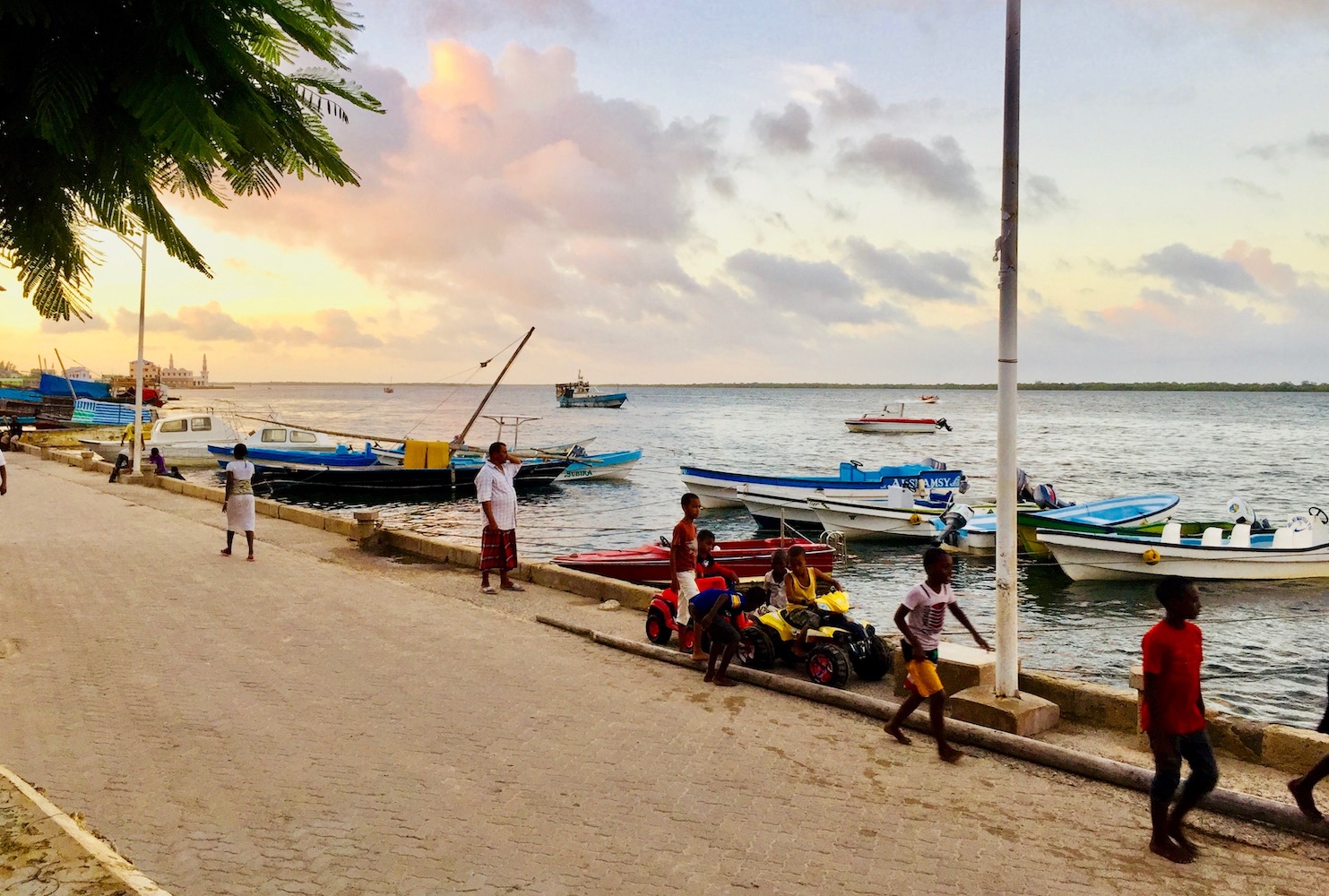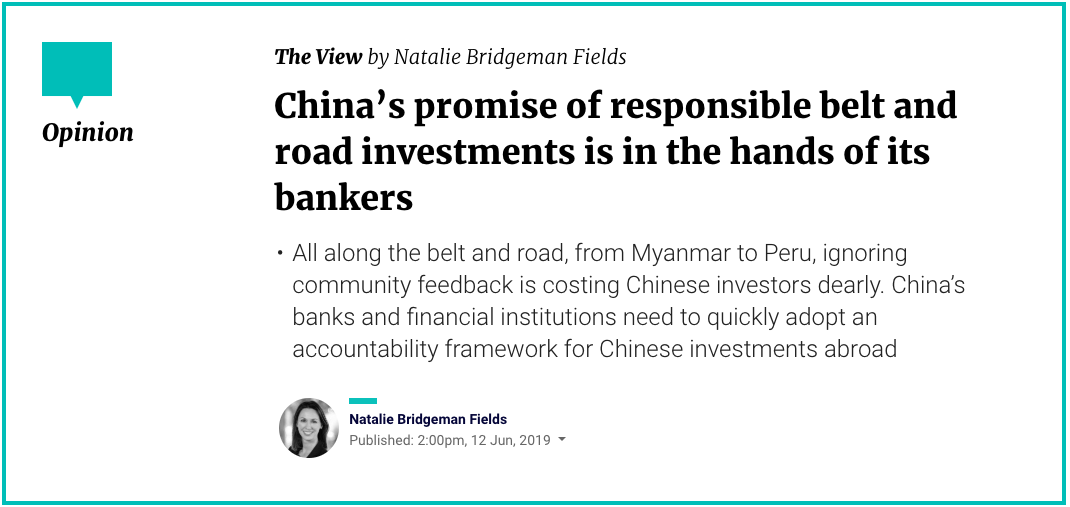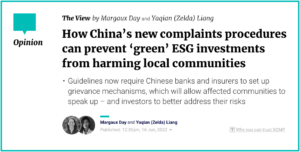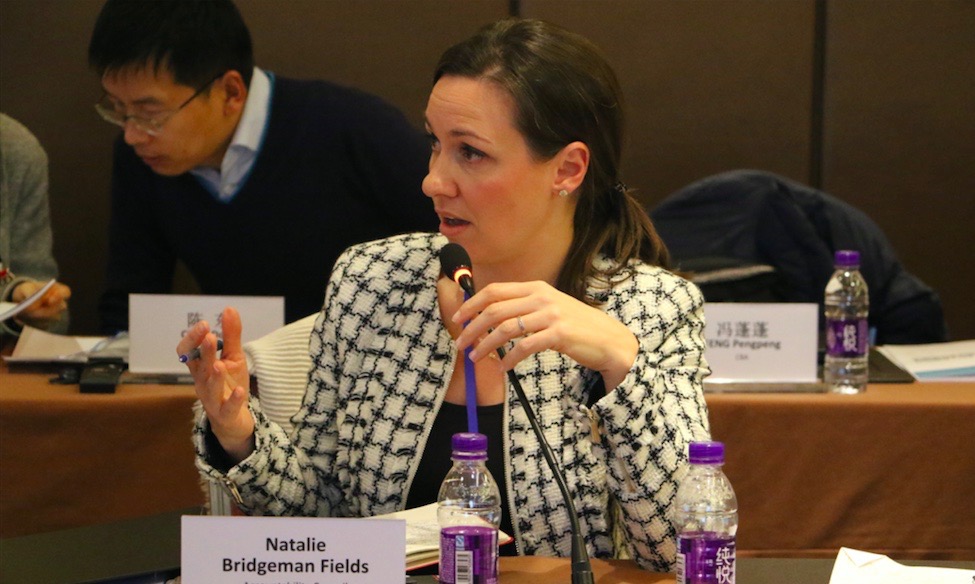China: Chinese Policy & Commercial Banks
-
Overview
Currently, communities harmed by Chinese investments abroad have limited options for seeking accountability and redress when those investments threaten or cause harm. From climate change to forced displacement of Indigenous People around the world, the consequences of this accountability gap are severe. We are working to fill this gap, advocating for the creation of accountability offices to address impacts caused by Chinese commercial and policy banks. So far, we are seeing progress.

Lamu beach front, at risk from the Lamu Coal Plant, which is predominately financed by Chinese investors.
We have seen the pervasiveness of Chinese finance and its harmful impacts in our own cases, in the requests for support from communities around the world, and in our own research.
In our case in Lamu, Kenya – where we are supporting two community organizations to defend their fragile environment, health, and livelihoods against the proposed Lamu Coal Plant – Chinese finance is the predominant source of financing. Our work has focused on the participation of multilateral development finance institutions in the project. However, the lack of an accountability framework for the Chinese financing means that communities cannot file a formal complaint to the largest investor in the project.
It is estimated that financing through China’s Belt and Road Initiative (BRI) alone could reach nearly $1.3 trillion by 2027 – an amount that will cause further irreversible environmental devastation and human suffering if current approaches continue.
Accountability Counsel is working with Chinese partners and international civil society colleagues to address this gap for the BRI and other Chinese overseas finance in a meaningful way.
Ultimately, we hope to advance the creation of accountability frameworks that meet international best practice so that communities raising social and environmental grievances will receive a response and remedy through an independent, fair, transparent, professional, accessible and effective process.
We invite you to learn more about Our Advocacy and to comment on our work discussed in the South China Morning Post here (2019) and here (2022) (and a Chinese translation here).


-
Our Advocacy
Recognizing the critical need to address the accountability gap in the Chinese banking sector, Accountability Counsel is sharing our technical expertise and policy advice with Chinese partners and institutions. We are seeing progress as a result of a decade of field-building and a more intensive period of advocacy with the Chinese government over the past three years.

Natalie Bridgeman Fields presents at a workshop on accountability in Beijing in 2017.
Building off our work with partners around Chinese involvement in the Asian Development Bank (ADB), Asian Infrastructure Investment Bank (AIIB), and other development finance institutions, Accountability Counsel participated in a series of five workshops, including ones sponsored by the China Banking and Insurance Regulatory Commission and China Banking Association, among others, to discuss the development of accountability frameworks for Chinese overseas finance. At these workshops, we presented the case for Chinese accountability offices in conversation with Chinese regulators and representatives from Chinese policy and commercial banks, multilateral development banks, existing accountability offices, and some civil society groups. These workshops have explored why environmental and social policies and accountability frameworks for these financial actors are important, and how these policies and frameworks could work for the benefit of all stakeholders.
During one workshop in Shanghai that we describe in a June 12, 2019 opinion piece in the South China Morning Post, the ADB’s Compliance Review Panel presented a draft accountability policy it developed with funding from China, announcing it as the basis for discussion and possible adoption by Chinese financial institutions. The draft reflects many of the best practice principles for an accountability policy, but substantial work is required to move safeguards and accountability forward in the Chinese context.
In June 2022, the China Banking and Insurance Regulatory Commission issued Green Finance Guidelines that require Chinese financiers to set up accountability mechanisms. This creates an opportunity for greater accountability to communities for environmental and social harm and for financial institutions to better manage the sustainability of their investments. We wrote about the importance of this requirement in the South China Morning Post.
Accountability Counsel continues to work with Chinese partners and international civil society colleagues to advance implementation of effective accountability frameworks at Chinese financial institutions.
“We were thrilled to collaborate with Oxfam Hong Kong in 2019 to translate the report Glass Half Full into Chinese. The report that we co-authored in partnership with 10 other organizations, assessed the effectiveness and performance of 11 accountability offices and their respective institutions. Now it is a timely resource for Chinese policy-makers.” – Natalie Bridgeman Fields, Accountability Counsel
-
Documents
Documents by Release Date
January 2023 – Press release from Accountability Counsel and Inclusive Development International, “Accountability Counsel and Inclusive Development International advise on new Chinese-led accountability mechanism for the mining sector.”
June 2022 – South China Morning Post, by Margaux Day and How China’s new complaints procedures can prevent ‘green’ ESG investments from harming local communities.” A Chinese translation was later published by the Business and Human Rights Resource Center.
June 2022 – The China Banking and Insurance Regulatory Commission issued Green Finance Guidelines (in Chinese here with an English press release here) that require Chinese financiers to establish complaints mechanisms.
Nov 2019 – News of Progress in the Movement to Advance Accountability for Chinese Overseas Finance, by Natalie Bridgeman Fields and Brian McWalters.
June 2019 – South China Morning Post, by Natalie Bridgeman Fields, “China’s promise of responsible belt and road investments is in the hands of its bankers.”
May 2019 – Mandarin Chinese Translation of Glass Half Full, the seminal report on accountability in development finance.
May 2019 – Devdiscourse, “ADB to develop Accountability Mechanism Framework to manage social risks”
Feb 2018 – The Diplomat, by Natalie Bridgeman Fields, “China Moves Toward Accountability for Overseas Financing”


